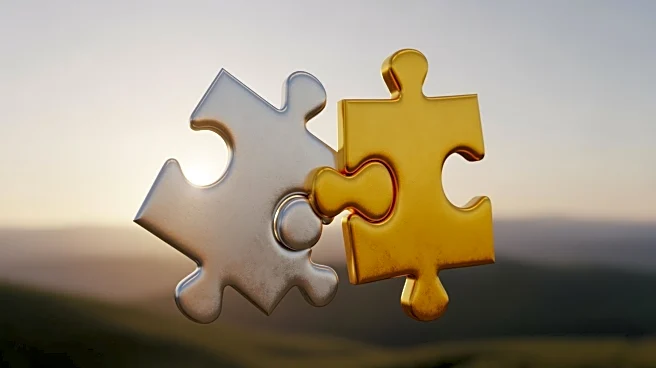What's Happening?
The Dallas Cowboys are mourning the loss of their teammate Marshawn Kneeland, who was found dead from an apparent self-inflicted gunshot wound. Kneeland's death has deeply affected the team, particularly
Dak Prescott and Solomon Thomas, who have both experienced personal losses due to suicide. Prescott lost his brother in 2020, while Thomas lost his sister. Both players have been vocal advocates for mental health awareness and suicide prevention, emphasizing the importance of seeking help and holding onto hope during difficult times. The Cowboys organized a Zoom call for players to process the tragedy, and conversations are expected to continue as the team returns from their bye week.
Why It's Important?
The tragic loss of Marshawn Kneeland highlights the ongoing mental health challenges faced by athletes and the importance of support systems within sports teams. Prescott and Thomas's advocacy for mental health resources underscores the need for accessible support and open conversations about mental health struggles. Their efforts to promote the 988 suicide prevention hotline reflect a broader push to make mental health resources more available and easier to access. This incident may prompt further discussions within the NFL and other sports leagues about how to better support players' mental health and prevent similar tragedies.
What's Next?
As the Cowboys continue to grieve, they will resume their season preparations, including upcoming games. The team will likely focus on providing emotional support to players and staff, ensuring that mental health resources are readily available. Prescott and Thomas may continue their advocacy work, potentially leading initiatives to improve mental health support within the league. The NFL could face pressure to enhance its mental health programs and policies, fostering a more supportive environment for players dealing with personal challenges.
Beyond the Headlines
The loss of Marshawn Kneeland may lead to broader discussions about the stigma surrounding mental health in professional sports. It could encourage teams to prioritize mental health as much as physical health, integrating mental wellness into training and support systems. This tragedy might also inspire other athletes to share their experiences and advocate for change, contributing to a cultural shift in how mental health is perceived and addressed in sports.








